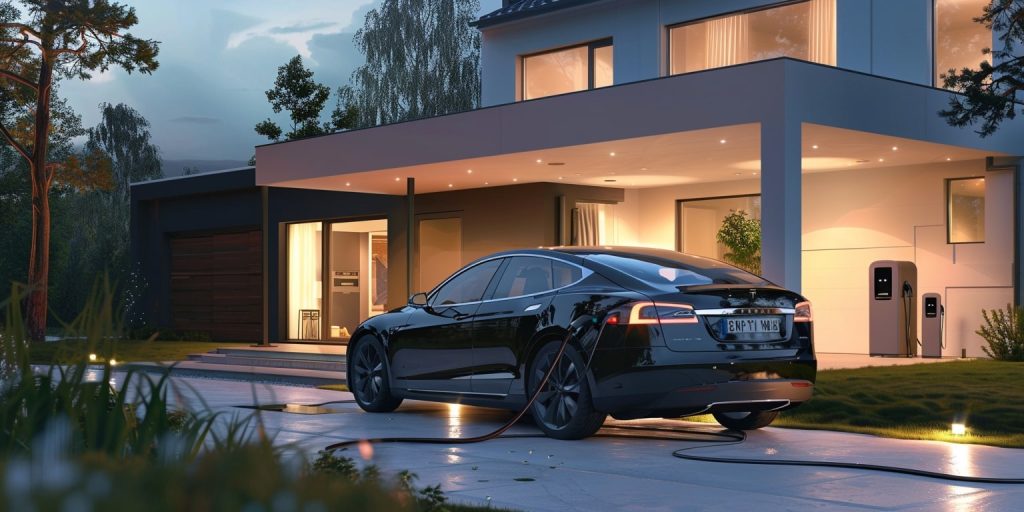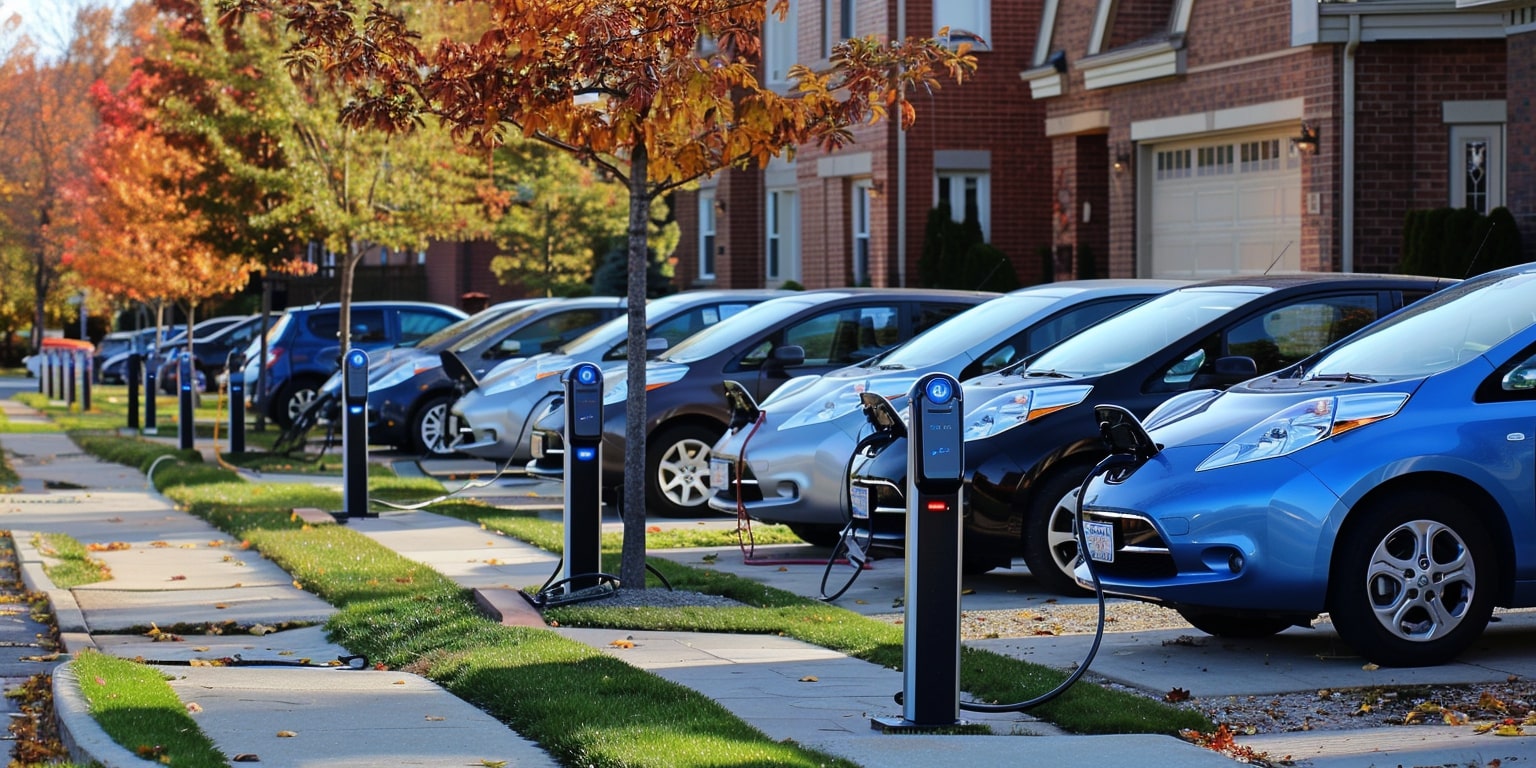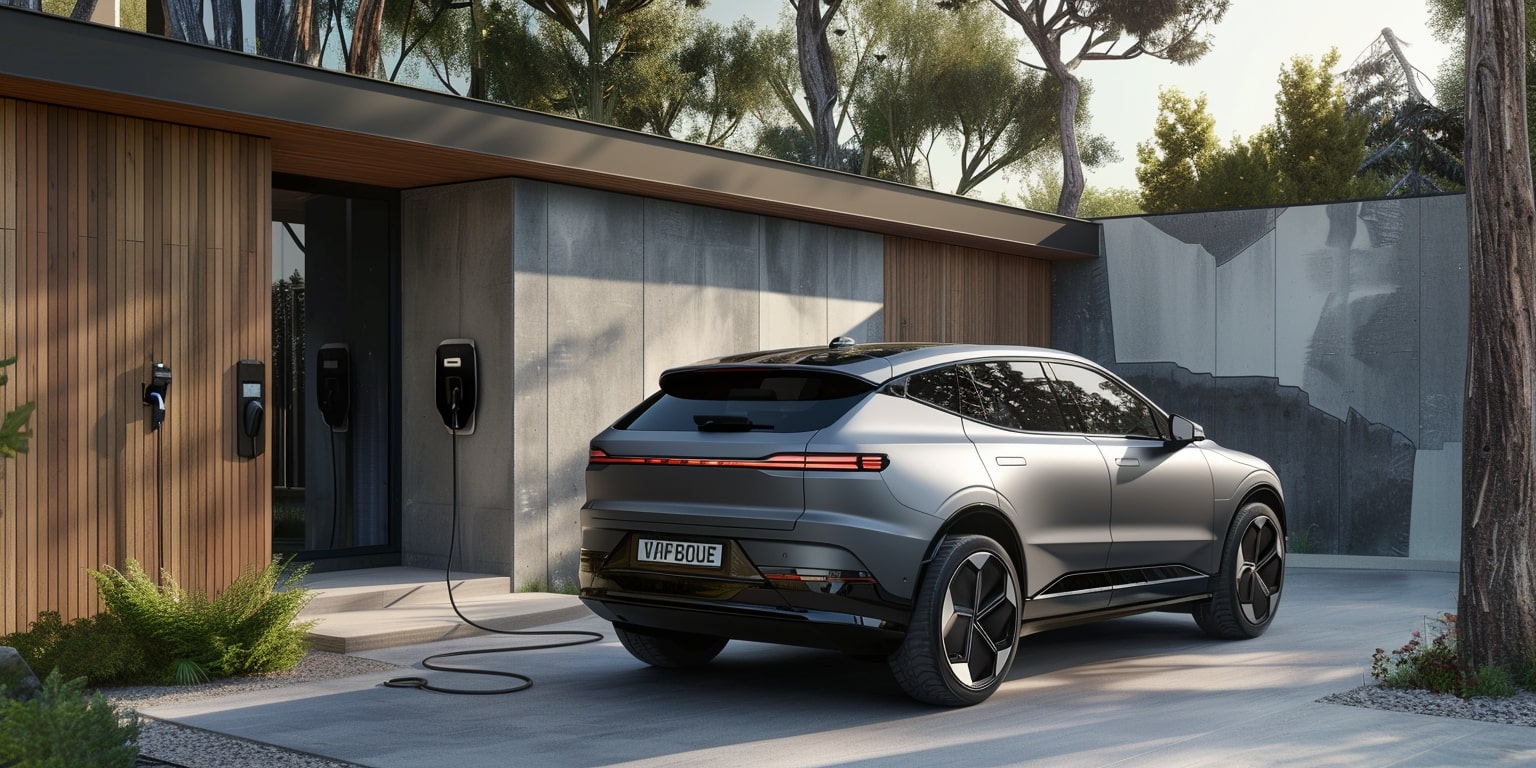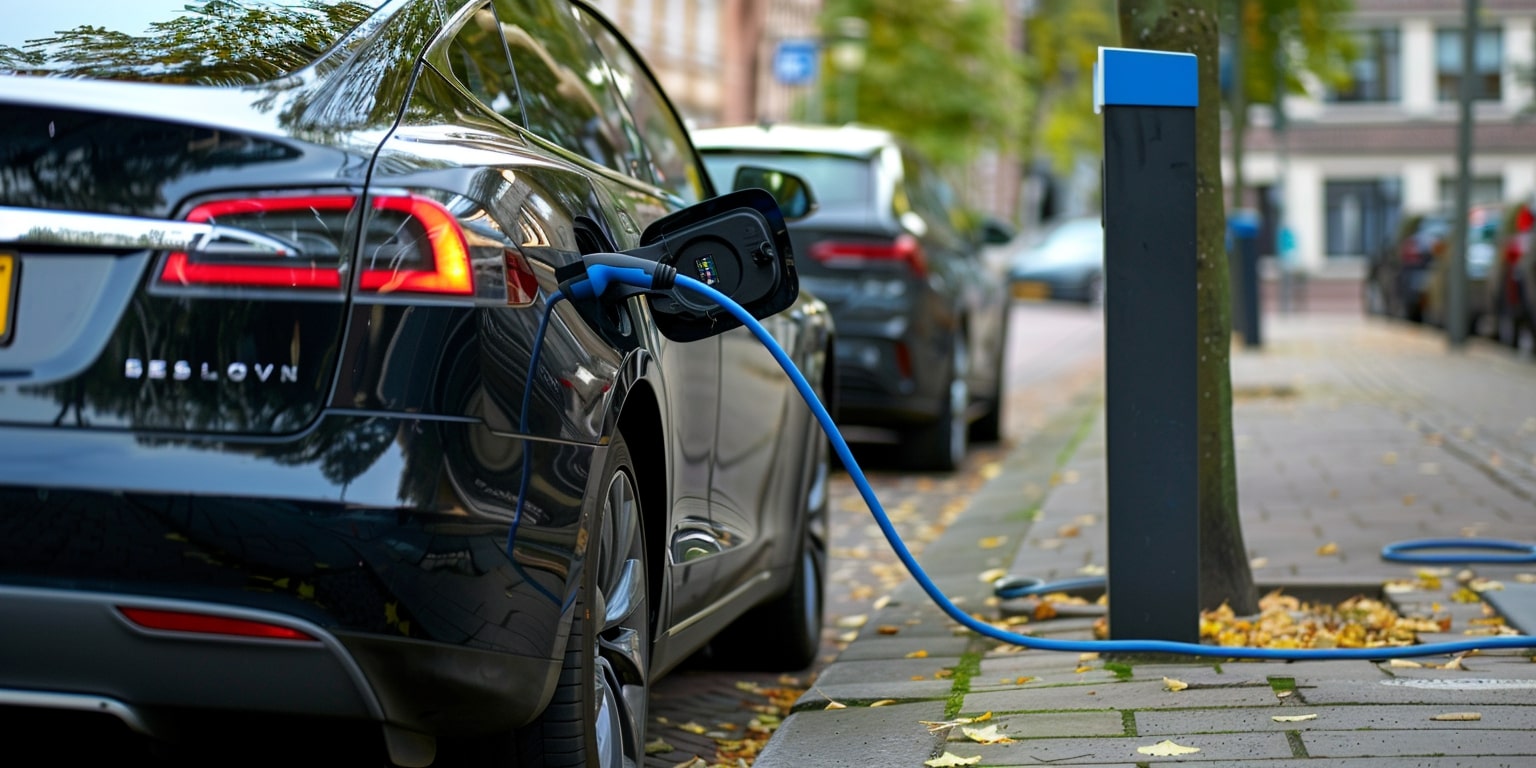The Future of Electric Vehicles: Charging Solutions for Homes and Businesses

Electric vehicles (EVs) are revolutionizing travel, offering a cleaner and greener alternative to traditional gasoline-powered cars. As EV popularity continues to surge, the need for efficient and convenient charging solutions is more crucial than ever. This piece navigates the complexities of electric vehicle (EV) charger installation, discussing types of chargers, charging times, costs, and technological advancements. Join us as we explore the future of sustainable transportation through EV charging solutions.
Understanding the Surge in Electric Vehicle Adoption
As global efforts to embrace sustainable transportation intensify, the shift towards electric vehicles (EVs) has seen remarkable growth. This section explores the driving forces behind this trend, highlighting the environmental and economic advantages of EVs, as well as significant breakthroughs in electric vehicle technology.
The Environmental and Economic Benefits of EVs
- Reduced greenhouse gas emissions: EVs produce lower or even zero tailpipe emissions, helping combat air pollution and reducing greenhouse gas emissions that contribute to climate change. By switching to EVs, individuals and businesses can actively contribute to a cleaner and healthier environment.
- Lower operating costs: Electric vehicles have lower maintenance and fueling costs compared to traditional gasoline-powered vehicles. With fewer moving parts and no need for gasoline, EV owners can save money on regular maintenance and enjoy cheaper electricity as an alternative to pricey fuel prices.
- Potential for energy independence: With the integration of renewable energy sources such as solar panels, EV owners can achieve energy independence by producing electricity and using it to power their vehicles. This reduces reliance on fossil fuels and offers long-term cost savings and greater control over energy consumption.
Key Milestones in Electric Vehicle Technology
- Advancements in battery capacity: Over the years, electric vehicle batteries have seen remarkable capacity and energy density improvements. Higher battery capacity translates to longer driving ranges, reducing concerns about range anxiety and making EVs more practical for everyday use.
- Improvements in charging infrastructure: The widespread deployment of EV charging stations has played a crucial role in promoting electric vehicle adoption. Governments, businesses, and organizations have invested in the development of robust charging networks, making it easier for EV owners to find and access charging facilities.
- Evolution of electric vehicle models: Electric vehicles are no longer limited to compact cars or niche segments. Major automotive manufacturers have expanded their EV lineups, offering a wide range of models across various vehicle categories, including sedans, SUVs, and even trucks. This diversification has made EVs more appealing to a broader customer base.
Electric Vehicle Charging 101
In today’s world, electric vehicles (EVs) are paving the way for sustainable transportation and reducing our carbon footprint. But how does the charging process work? Let’s dive into a comprehensive overview of EV charging, including the different types of chargers available and the associated charging times and costs.
Types of EV Chargers
- Level 1 Chargers: These chargers provide the most basic form of charging and are often included when purchasing an EV. Level 1 chargers use a standard household outlet and provide a slow charging speed, typically adding about 3-5 miles of range per hour. While convenient for overnight charging at home, they might not be suitable for fast charging needs or long-distance travel.
- Level 2 Chargers: Level 2 chargers are the way to go for faster and more efficient charging. These chargers require a dedicated 240-volt circuit installation and can add around 25-30 miles of range per hour. Level 2 chargers are commonly found in residential settings and are compatible with most EVs on the market. They strike a balance between convenience and charging speed, making them a popular choice for homeowners looking to charge their EVs overnight or during the day.
- DC Fast Chargers: When time is of the essence, DC Fast chargers are the fastest charging solution available. These high-powered chargers can provide up to 80% charge in as little as 30 minutes, making them ideal for long-distance travel or when you’re in a hurry. DC fast chargers use direct current (DC) to charge the EV’s battery, bypassing the need for an onboard converter. However, it’s important to note that not all EVs are compatible with DC Fast chargers, so checking your vehicle’s specifications before using one is essential.

Understanding Charging Times and Costs
Charging times and costs can vary depending on several factors, including the charger type, the battery size of the EV, and the charging speed. Here are some key points to consider:
- Charging Times: Level 1 chargers are the slowest, typically requiring several hours or even overnight to fully charge an EV. Level 2 chargers are faster, providing a full charge within 4-8 hours, depending on the battery size. DC Fast chargers offer the quickest charging times, allowing you to reach 80% charge in just 30 minutes.
- Charging Costs: The cost of charging an EV can vary depending on the electricity rates in your area and the charging network you use. Some charging stations offer free or low-cost charging, while others may require a membership or payment per kilowatt-hour (kWh) of electricity used. Researching the charging costs and considering the overall savings compared to traditional gasoline-powered vehicles is important.
Installing EV Chargers at Home
Before installing an EV charger at home, assessing your home’s electrical system for compatibility is crucial. You’ll need to determine if your electrical panel has sufficient capacity to handle the charger’s power requirements. A certified electrician can help evaluate your electrical setup and make any necessary upgrades.
Another important consideration is choosing the right home EV charger. Various options are available, ranging from Level 1 chargers that plug into a standard electrical outlet to Level 2 chargers that require professional installation. Level 2 chargers are generally recommended for faster charging times and increased convenience.
Once you’ve selected a suitable EV charger, the installation process typically involves mounting the charger on a wall or post near your parking area. A certified electrician will handle the wiring and ensure all safety protocols are followed.
EV Charging Solutions for Businesses
Businesses play a crucial role in driving the adoption of electric vehicles (EVs) and promoting sustainable transportation. By offering EV charging stations, they can enhance customer experiences, attract environmentally conscious employees, and contribute to a greener future. Here, we explore the various EV charging solutions available for businesses, highlighting the benefits and different commercial EV charging infrastructure types.
Benefits of Offering EV Charging to Employees and Customers
- Attracting Customers: Installing EV charging stations can increase foot traffic and attract EV drivers who are actively seeking businesses with charging facilities.
- Employee Satisfaction: Providing workplace EV charging demonstrates a commitment to sustainability, improving employee satisfaction and retention.
- Public Image: Businesses with EV charging stations project a forward-thinking, environmentally conscious image, enhancing their reputation among customers and the community.
- Revenue Generation: Some businesses choose to monetize their EV charging stations, creating an additional revenue stream.
Commercial EV Charging Infrastructure
When considering EV charging solutions for businesses, choosing the right infrastructure that aligns with the organization’s needs and goals is essential. Here are some common types of commercial EV charging stations:
- Level 2 Charging Stations: These stations deliver a moderate charging speed suitable for businesses with longer customer stays, such as restaurants, shopping centers, and hotels.
- DC Fast Charging Stations: Ideal for businesses aiming to provide rapid charging, these stations are commonly found along highways, rest areas, and fleet depots.
- Networked Charging Stations: These stations offer advanced features like remote management, user authentication, and payment systems, making them suitable for businesses looking for enhanced control and security.
Navigating Incentives and Regulations for Businesses
Businesses interested in installing EV charging stations can take advantage of various incentives and navigate regulations to minimize costs and maximize benefits. These include:
- Government Incentive Programs: Many governments offer financial incentives, grants, or tax credits to businesses installing EV charging infrastructure. Researching and applying for these programs can significantly offset installation costs.
- Utility Programs: Some utility companies provide incentives, rebates, or demand response programs that encourage the installation of EV charging stations.
- Regulatory Compliance: It’s crucial to stay updated on local regulations, permits, and building codes to ensure compliance throughout the installation process.
Future Trends in EV Charging
As electric vehicles continue to gain popularity, the demand for charging solutions is also increasing. In this section, we will delve into the future trends that are shaping the EV charging landscape.
Wireless EV Charging: The Next Frontier
Wireless EV charging is considered the next frontier in the EV industry. This technology allows vehicles to charge without the need for physical connections, providing a convenient and hassle-free experience for EV owners. As technology continues to advance, wireless charging pads are becoming more efficient, enabling faster charging times and improved overall performance.
Solar-Powered Charging Stations
Solar-powered charging stations are gaining popularity as a sustainable solution for EV owners. By harnessing the power of the sun, these stations provide clean energy for charging electric vehicles while reducing carbon emissions. With solar-powered charging stations, you can take advantage of renewable energy sources to charge your EV, contributing to a greener and more sustainable future.
Smart Charging and Integration with Smart Grids
Smart charging and its integration with smart grids have the potential to revolutionize the EV charging infrastructure. This technology allows efficient charging station management, optimizing energy usage, and reducing peak demand. By leveraging smart charging solutions, EV owners can take advantage of off-peak electricity rates and time their charging sessions to align with renewable energy availability. With these advancements, the future of EV charging looks promising, offering enhanced convenience, sustainability, and efficiency.

How Inter Connection Electric Can Help
Inter Connection Electric is your trusted partner for all your EV charging needs. We offer expert installation services for both homes and businesses, ensuring a seamless and efficient charging experience. Our team of experienced professionals specializes in EV charging installation, handling the entire process from initial consultation to final installation.
Expert Installation Services for Homes and Businesses
Our experienced team understands the unique requirements of residential and commercial EV charging. Whether you need a home charging solution or a charging infrastructure for your business, we deliver customized solutions tailored to your specific needs.
Customized Solutions for Your EV Charging Needs
At Inter Connection Electric, we recognize that every EV owner has specific charging needs. That’s why we provide customized solutions to meet your requirements. Our expertise in EV charging allows us to design and install the most efficient and reliable charging infrastructure for your electric vehicle, ensuring a smooth and reliable charging experience.
Ongoing Support and Maintenance
Our commitment to customer satisfaction extends beyond installation. We offer ongoing support and maintenance for your EV charging stations to ensure optimal performance and longevity. Our team of technicians is readily available to address any issues or provide assistance whenever needed, keeping your charging stations running smoothly at all times.
Final Thoughts
In summary, establishing EV charging stations is essential for supporting the shift towards sustainable transportation and encouraging the adoption of electric vehicles. With the rise of electric vehicle usage, the accessibility to reliable charging stations has become critical. Homeowners benefit from the convenience of charging their vehicles overnight, alleviating range anxiety and ensuring readiness for travel. Similarly, businesses offering EV charging attract environmentally-minded consumers and affirm their commitment to sustainability. As the electric vehicle sector grows, the demand for charging infrastructure is set to increase, marking a pivotal movement towards a more sustainable and environmentally friendly future in transportation.

